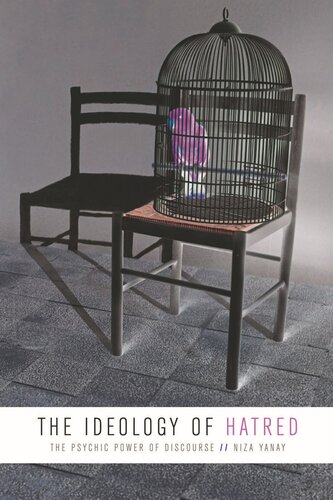

Most ebook files are in PDF format, so you can easily read them using various software such as Foxit Reader or directly on the Google Chrome browser.
Some ebook files are released by publishers in other formats such as .awz, .mobi, .epub, .fb2, etc. You may need to install specific software to read these formats on mobile/PC, such as Calibre.
Please read the tutorial at this link: https://ebookbell.com/faq
We offer FREE conversion to the popular formats you request; however, this may take some time. Therefore, right after payment, please email us, and we will try to provide the service as quickly as possible.
For some exceptional file formats or broken links (if any), please refrain from opening any disputes. Instead, email us first, and we will try to assist within a maximum of 6 hours.
EbookBell Team

0.0
0 reviewsThe 21st century might well be called the age of hatred. This is not because there is more violence in the world but because hatred has been transformed from a concept perceived to be a by-product of personal or collective violence into a discursive field. But what if longstanding antagonisms, especially those between social groups, turned out to involve desire rather than revulsion? The Ideology of Hatred develops a psychosocial framework for understanding this new phenomenon by interrogating unconscious mechanisms within national discourse. It opens new and timely venues for thinking about the paradoxes of love and hate while raising questions about social attachment and otherness. Is it possible that hatred operates by maintaining a safe closeness, enhancing the illusion of separateness as well as a sense of proximity at one and the same time? Could it be that love actually survives through the discourse of hatred as an invisible relation of attachment, necessary but unthinkable? A key term in the book is the “political unconscious,” a concept signifying the transformation of the unthinkable into a language that disavows the desire of and for the Other. Invoking this and other psychoanalytic concepts, the book proposes that at the heart of all national conflicts lies a riddle: the enigma of desire. The discourse of hatred works today as both a defense mechanism and as a political fantasy whose dream is to annihilate the Other of desire, that familial and different, threatening and intimate Other. Yet because love-in-hatred is denied but not erased, love can therefore also be reimagined. This suggests that untying and recognizing relations of intimacy and dependency can, under certain circumstances, change the discourse of hatred into relations of peace and even friendship. In addition to its strong theoretical component, the book is also based on extensive empirical research, especially into hate relations among Jews and between Jews and Palestinians in Israel.